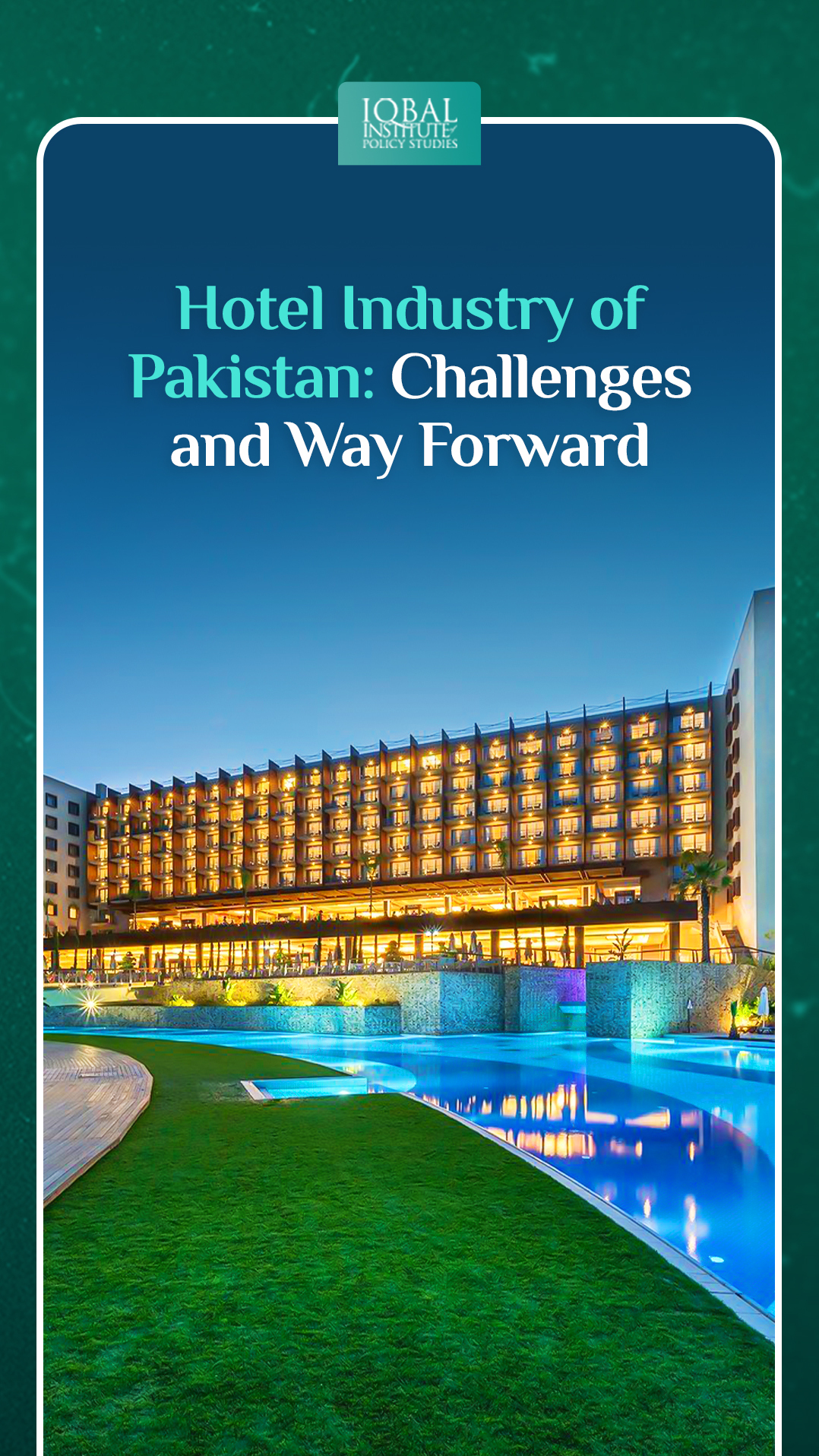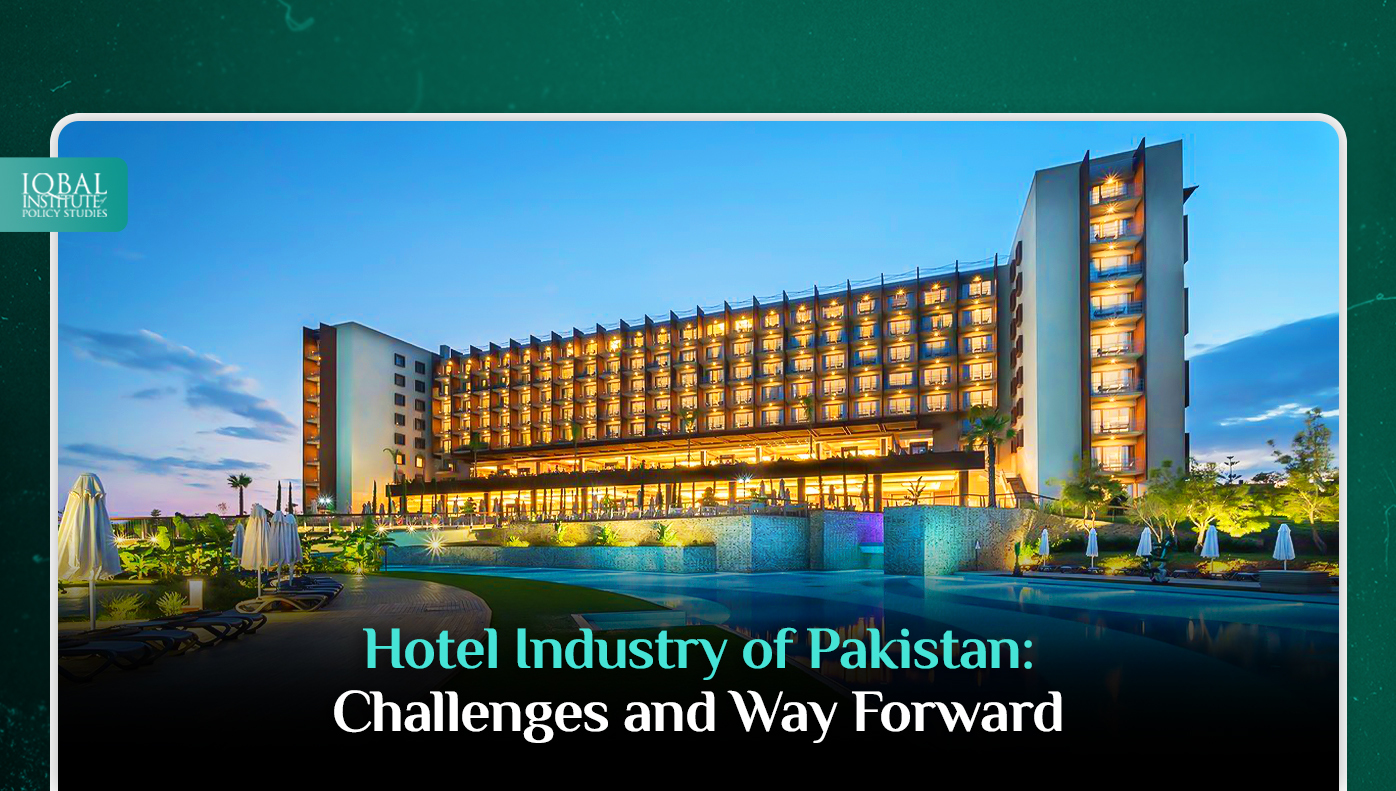The Hotel and tourism industry plays a significant role in boosting the country’s economic growth. The hotel industry comprises various fields, namely lodging, events, transportation, cruise line etc. Pakistans’ tourism and the hotel industry were valued at nearly $20 billion in 2020. However, the hotel industry was adversely affected due to the recent pandemic and floods (Moosavi & Ali, 2022). Hotels and restaurants have emerged because of a boost in tourism, contributing 7.1% to the Gross Domestic Product.
The two main growth drivers in Pakistan are the agriculture and services sectors. The services sector mainly captures the hospitality industry. The growth in the service sector has been recorded at around 6.2% (GoP, 2022). Skilled labour in the hospitality sector can improve business operations. Hence, training programs can play an important role in improving employees’ skills and performance to cater to customers’ demands efficiently. With the increase in demand, the competition in the market has also increased, which can only be fulfilled through the effective training of the employees in the hotel industry (Khattak et al., 2019).
Hotel and Lodging
Pakistan’s hotel industry adversely suffered due to environmental, economic and political risks. Due to the Pandemic, the hotel occupancy rate has declined to 44% (PACRA, 2021), and floods in 2022 have destroyed the hotel industry, particularly in northern areas. According to Pakistan Hotel Association, by the end of 2017, there were around 10,000 hotels comprising 50,000 rooms across the country. The revenue generated by each room was $150 as compared to India, which generated $300 – $500 per room (Shah et al., 2018).
The Pakistan hotel industry is evolving as international luxurious hotels are starting to operate. There are 26 hotels that are operating at international standards (PACRA, 2021). Similarly, startups like Roomphs and Lets Home are playing essential roles in improving lodging services by providing customers with a unique experience (such as easily booking rooms) and facilitating the sector to increase its revenue.
The country has attracted around 60,070 foreign tourists in the last six years. The country has emerged as an investment destination for new hotels. By 2030, it is expected that the number of visitors will be increased by up to 30% (PACRA, 2021).
Hotel and Lodging Business Model in Pakistan
Pakistan’s hotel industry operates based on two models, i.e., the asset-light model and the asset-heavy model.
 Asset Light Model
Asset Light Model
Franchised – owned and operated by the different parties who pay fees to the hotel company to use their brand names like Marriot
Managed – Operated by a party distinct from the hotel owner, who pays management fees and, if the hotel uses a third-party brand name, fees to that third party such as Hotel One.Asset Heavy Model
Operated and branded by the owner, who bears all the cost but benefits from all income, like Pearl Continental.
Similar to the owned, except the owner-operator does not have outright ownership of the hotel but leases it from the ultimate owner like Serena Hotels and Resorts.
Challenges
The major challenges faced by the hotel industry in Pakistan are:
Labour Shortage
The hotel industry’s contribution to Pakistan’s GDP is important, and it can be increased by having skilled and trained staff in it. Hotels all over Pakistan are struggling to attract and retain qualified workers as qualified workers are essential to provide good quality services.
Skilled workers are essential to increase work productivity. Pakistan did not have more availability of skilled IT workers in the tourism and hospitality sector due to a lack of interest from youngsters and awareness in this area (Nain, 2018).
Conversely, this industry has the potential to provide employment to unskilled and semi-skilled workers. Because highly qualified people can opt for the profession of travel guide, but lack or limited coverage of customer services training programs in the tourism industry is decreasing the expectation of tourists.
Rising Technology Demand
Innovation and technology are essential for the hospitality industry. As per the survey, tourists are more willing to stay in hotels that offer new technologies. Around the world, hotels have already initiated using installed robotics and voice control technology. For instance, a 5-star hotel in Vegas is using Amazon Echo, and Marriott is already exploring Amazon Alexa and Google Home to use in their hotel rooms. Whilst technology provides endless opportunities to improve hotel efficiencies. Investment in technology is critical to long-term business success, but it must not come at the cost of personal service. (Nain, 2018)
In Pakistan, internet penetration is only 54%, and merely 76 million people use 3G+ connections (Kohari & Bashir, 2020). Pakistan is standing at 90th place (at the lowest quantile) on the Inclusive Internet Index, which determines the affordability, availability, and people’s readiness to use the internet (Ali K. , 2021). The situation of internet infrastructure is worse in Northern areas. The only internet service available in Gilgit Baltistan is Special Communication Organisation (SCO), and its 16 MPs speed is equivalent to 4MPs available in Islamabad; nonetheless, it provides the most expensive package as residents of Gilgit Baltistan have to pay 20 times more as compared to the internet package available in Islamabad. This situation restricts technology innovation in tourism (Kohari & Bashir, 2020).
Lack of Infrastructure
Infrastructure plays an important role in the development of the tourism industry. Due to poor infrastructure, Pakistan’s tourism and hospitality industry cannot grow as per international standards. It was found that the tourism industry cannot quench its full potential in Pakistan due to poor management and a lack of efficient infrastructure in the hotel industry. The IMARAT group of companies has signed an MOU with Marriott International hotels to improve the infrastructure. It’s not just the hotel’s infrastructure that affects the growth; the infrastructure of roads, airports, and railways also affects the tourism industry.
Inability to Reinstate the Natural Disasters
The tourism industry is one of the most highly exposed to disasters due to its reliance on interrelated industries and locations in many hazard-prone regions. Emergency planning and preparedness for a natural disaster are essential to protect the hospitality sector. Recent floods in Pakistan have caused a loss of PKR 10 million to the tourism industry (Ali, 2022). Before that, during the times of earth quack in 2008 and the floods of 2010 government was not prepared to reinstate the condition of those affected areas.
Rising Inflation
Due to economic crises, the perpetual rise of prices and inflation in Pakistan affects local tourists. As the price of transportation, food, hotel stay and accommodation has increased, many national tourists now lost the attraction to visit northern areas and other tourist destinations.
Recommendations
To boost the hotel industry, certain measures should be taken:
Government should make a strategy to attract foreigners who have stopped visiting the country due to security and natural disasters;
Tax structure plays an important role in the industrialisation process. The government should initiate tax incentives for airfares, hotels and other tourism-related industries;
Pakistan is rich in cultural and traditional festivals. This should be organised and planned to attract more tourists;
To reduce energy costs, hotels should invest in Variable Refrigerant Flows units to replace the current centralised HVAC system, allowing each room to control its own temperature.
Electronic and print media should focus on the highlights and attractions of tourist sites in the country and so play an important role in enhancing the demand for tourism in Pakistan;
The Hotel Management should improve the quality as customers believe that the hotel room charges are high and quality is low;
Government should take a step to stabilise the economy as it is affecting the tourism industry;
There is a dire need to improve the digital infrastructure of the country;
The hotel industry should raise its voice and negotiate with the government to make sound policies for the improvement of the hotel industry;
There is a need to develop the Hotel Resilient Initiative, which aims to develop internationally recognised standards for hotels and resorts that will assist them in reducing business risk and risk of tourism;
Quality courses based on Hotel Management should be offered in Universities and Institutes.
Conclusion
Pakistan’s hotel industry can potentially increase foreign direct investment, employment opportunities and skills, improving economic growth. The obstacles that hinder growth are a shortage of skilled labour, increased technological demand, lack of infrastructure, climate change events and economic crises. Government should take steps to improve the whereabouts of the hotel industry, reduce taxes, make strategies for combating natural disasters, increase awareness, introduce courses in universities etc. These steps will ensure growth in the hotel industry resulting in an economic boom in the long run.
References
Ali, K. (2021, April 20). Pakistan drops to 90th rank on the inclusive internet index. Retrieved from Dawn: https://www.dawn.com/news/1619250
Ali, Z. (2022, September 19). Floods leave tourism in tatters. Retrieved from Tribune: https://tribune.com.pk/story/2377334/floods-leave-tourism-in-tatters
Khattak el at. (2019). Role stress and its outcomes: evidence from the hotel industry of Pakistan. Structural Equation Modeling A Multidisciplinary Journal.
Kohari, A., & Bashir, S. (2020, November 24). Would you climb a mountain for internet access? Retrieved from Rest of the World: https://restofworld.org/2020/the-hills-are-alive/
Moosavi, A., & Ali, T. (2022). Hotel and Restaurant Industries of Pakistan: Opportunities and Market Dynamics. PIDE Knowledge Brief.
Nain, A. (2018). A Study on Major Challenges Faced by Hotel Industry Globally. International Journal of Creative Research Thoughts.
PACRA. (2021). Hotel and Lodging Sector Study. The Pakistan Credit Rating Agency Limited.
Shah et al. (n.d.). Situation Analysis Hospitality Industry. NAT.



Leave a Reply